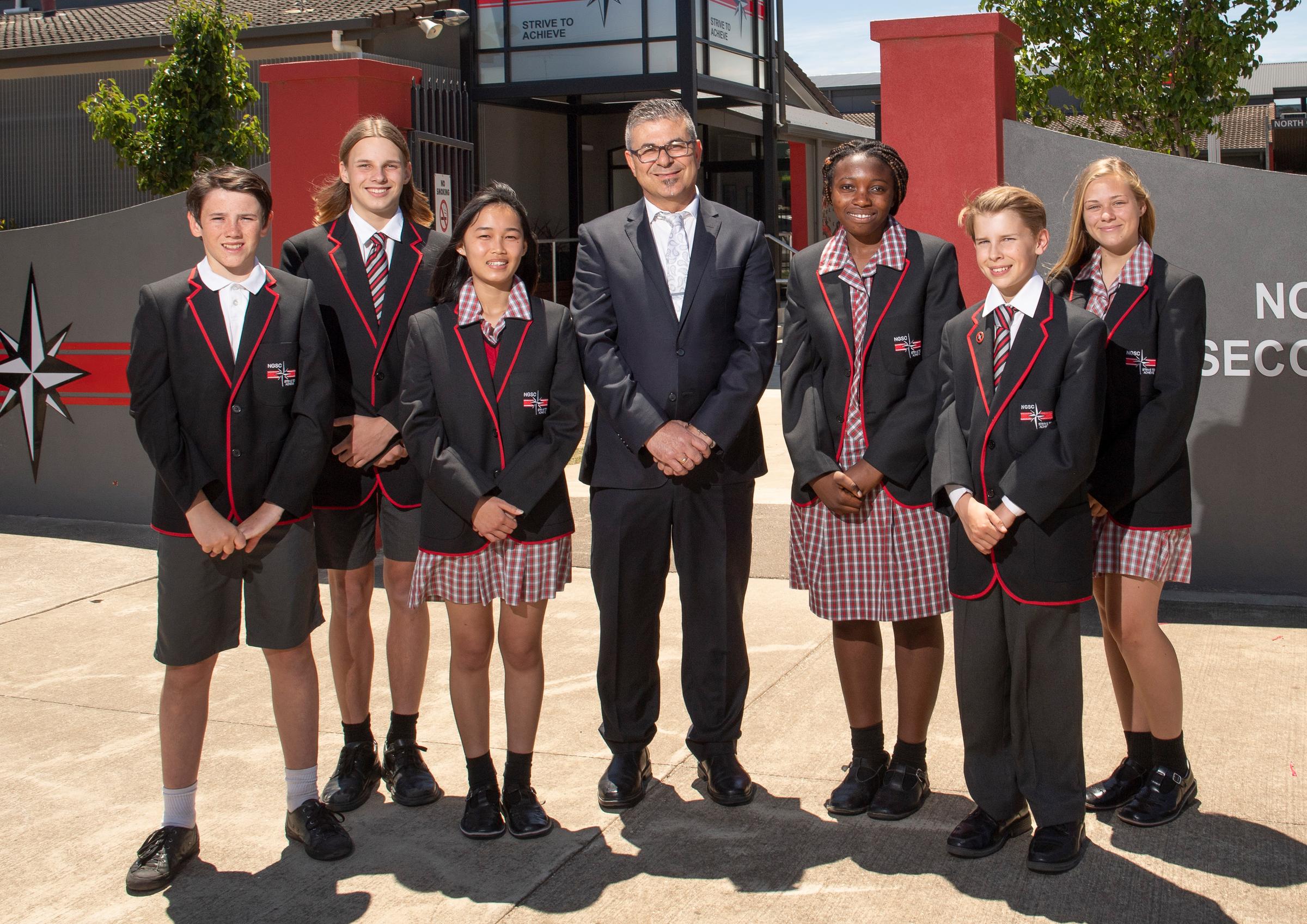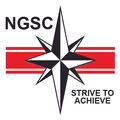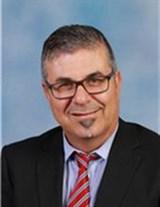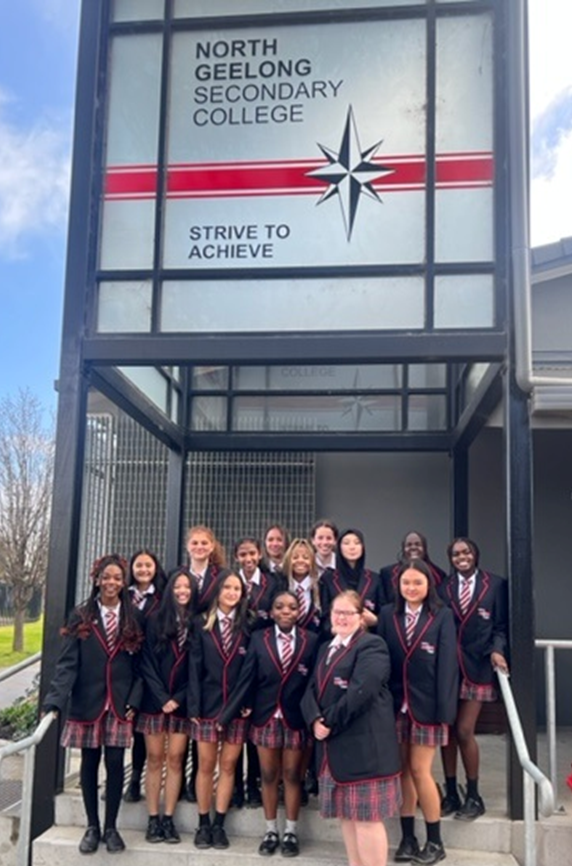PRINCIPAL'S REPORT

Nicholas Adamou
Principal
2022 Key Dates
| 25 to 29 July | Year 10 Careers Week |
| 9 Aug | Parent/Teacher Conferences Student Free Day, however, students to attend with Parents |
| 15 to 17 Aug | Year 8 Camp 1 |
| 17 to 19 Aug | Year 8 Camp 2 |
| 31 Aug | Curriculum Day Student Free Day for all students |
| 7 Sept | GAT Exam (VCE Units 3 & 4 students) |
| 7 Sept | Common PPD Day for Teachers - Student Free Day for students not attending the GAT exam |
| 16 Sept | Last Day Term 3 |
| 3 Oct | First day Term 4 |
Welcome to Term 3. I hope you were able to enjoy some well-deserved rest and relaxation over the school holidays.
I hope that everybody had a relaxing break and is now ready for a very busy term. In particular, the Year 12 students are coming closer to the end of their final VCE exams. I also trust that all parents and carers have logged onto the school portal and received their children’s reports, celebrated their achievements, and discussed areas for improvements.
The beginning of a term is always a good time to reflect on the previous performance and set new goals to be achieved for the remaining of the academic year.
Any parent/carer who, for some reason, hasn’t been able to log onto the school parent portal (Compass) to receive their child’s report, I urge you to immediately contact the school to be provided with support in order to be able to receive your child’s Semester One report.
Also, during this term students from Year 8 to Year 10 will undergo an extensive subject selection process and counselling to ensure that everyone is successful in their individual pathways. Parents have been provided with relevant information and the opportunity to be part of their children’s course counselling process. I encourage all parents/carers to take the opportunity to be involved in the subject selection process.
Wishing everyone a safe and productive Term 3.
New Victorian Government Schools Agreement - Professional Practice Days (PPD)
The proposed Victorian Government Schools Agreement (EBA) has been ratified by Fair Work Commission and is in place as of Monday 25 July. DET has worked on the implementation guide and provided it to all Principals and school staff members.
- Professional Practice Days for teachers (PPDs) for the duration of this EBA
Three Professional Practice Days in 2022, two Professional Practice Days in 2023 and one Professional Practice Day in 2024 and subsequent school years, to focus on the improved delivery of high-quality teaching and learning as set out below:
| Professional Practice Days | |
2022 | Term 2 | 1 |
Term 3 | 1 | |
Term 4 | 1 | |
2023 | Semester 1 | 1 |
Semester 2 | 1 | |
2024 | School year | 1 |
2025 | School year | 1 |
These days are in addition to existing pupil free days and planning time and are pro-rata for a teacher employed part-time.
To be able to implement and manage the PPDs this year, given the lateness of the DET announcement and the severe CRT shortages, DET has advised that one out of the two remaining PPDs be a common day for all teachers. The day is determined by the school, at a time that suits the curriculum delivery.
Therefore, the school will implement the common teacher PPD on Wednesday, September 7 (GAT examination day). This day is not a student free day; however, students will not be required to attend.
The only students who will be required to attend school on this day will be all students, undertaking the GAT VCAA examination (VCE Unit 3 & 4 students, Year 11 students included, Senior VCAL students and scored VET students).
The Victorian Department of Health strongly recommends that face masks are worn in indoor settings
Recent announcements by the Victorian government about public health measures to help reduce the spread of COVID-19 and other illnesses, especially influenza, throughout the remainder of the winter season.
Face Masks
It is strongly recommended by the Victorian Department of Health that face masks are worn in indoor settings, with face masks mandatory for those aged 8 and over who are household contacts and attending school. This is because the wearing of masks is effective in reducing the transmission of COVID-19. What does this mean in practice for schools?It is the department’s expectation that, through to the end of winter, students aged 8 and over (all students) and staff will wear masks when in class, except where removing a mask is necessary for clear communication or when a particular activity requires the removal of a mask. Masks are not required to be worn outdoors but can be worn when physical distancing is not possible. Parents and carers will play an important role in supporting this expectation.Please find attached a letter from the Department of Education which explains how this will be a consistent expectation across all schools in Victoria this winter. Wearing masks is a simple step we can all take this winter to reduce the number of COVID-19 cases and ensure our schools are as safe as possible. Exemptions for Testing and IsolationThe period of time when someone is considered a recently confirmed case and therefore exempt from testing and isolation requirements has been reduced from the previous 12 weeks to 4 weeks. This means that staff and children who are household contacts of people with COVID-19 are now required to undertake the testing and isolation requirements from 4 weeks after completing isolation with COVID-19. Previously, this exemption period was 12 weeks. After the 4-week exemption period, students and staff members who are a household contact of a new COVID-19 case, must follow the rules for household contacts, including reporting this to their school. As part of this they must take 5 rapid antigen tests (RATs) over 7 days and receive negative test results and wear a face mask (if over 8 years old) in indoor spaces. Families and staff will also have to report being a household contact to their school after this 4-week period. We appreciate your continued support around implementing COVID19 safe measures in our school.
Child safety in remote online learning environments
Parents and carers are responsible for their students general safety at home or elsewhere. However, the school will continue to work closely with students and families to:
- identify risks that are reasonably foreseeable for students who are learning at home
- take reasonable steps that are in the school’s control to prevent reasonably foreseeable harm to students
Child Safety Code of Conduct
NGSC is committed to the safety and wellbeing of children and young people. Our school community recognises the importance of, and a responsibility for, ensuring our school is a safe, supportive and enriching environment which respects and fosters the dignity and self-esteem of children and young people, and enables them to thrive in their learning and development.
This Code of Conduct aims to protect children and reduce any opportunities for child abuse or harm to occur. It also assists in understanding how to avoid or better manage risky behaviours and situations. It is intended to complement child protection legislation, Department policy, school policies and procedures and professional standards, codes or ethics as these apply to staff and other personnel.
The Principal and school leaders of NGSC support the implementation and monitoring of the Code of Conduct, and will plan, implement and monitor arrangements to provide inclusive, safe and orderly schools and other learning environments. The Principal and school leaders will also provide information and support to enable the Code of Conduct to operate effectively.
All staff, contractors, volunteers and any other member of the school community involved in child-related work are required to comply with the Code of Conduct by observing expectations for appropriate behaviour below. The Code of Conduct applies in all school situations, including school camps and in the use of digital technology and social media.
Acceptable behaviours
As staff, volunteers, contractors, and any other member of the school community involved in child-related work individually, we are responsible for supporting and promoting the safety of children by:
- upholding the school’s statement of commitment to child safety at all times
- treating students and families in the school community with respect both within the school environment and outside the school environment as part of normal social and community activities.
- listening and responding to the views and concerns of students, particularly if they are telling you that they or another child has been abused or that they are worried about their safety/the safety of another child
- promoting the cultural safety, participation and empowerment of Aboriginal and Torres Strait Islander students
- promoting the cultural safety, participation and empowerment of students with culturally and/or linguistically diverse backgrounds
- promoting the safety, participation and empowerment of students with a disability
- reporting any allegations of child abuse or other child safety concerns to the school’s leadership
- understanding and complying with all reporting or disclosure obligations (including mandatory reporting) as they relate to protecting children from harm or abuse.
- if child abuse is suspected, ensuring as quickly as possible that the student(s) are safe and protected from harm.
Unacceptable behaviours
As staff, volunteers, contractors, and any other member of the school community involved in child-related work we must not:
- ignore or disregard any concerns, suspicions or disclosures of child abuse
- develop a relationship with any student that could be seen as favouritism or amount to ‘grooming’ behaviour (for example, offering gifts)
- exhibit behaviours or engage in activities with students which may be interpreted as abusive and not justified by the educational, therapeutic, or service delivery context
- ignore behaviours by other adults towards students when they appear to be overly familiar or inappropriate
- discuss content of an intimate nature or use sexual innuendo with students, except where it occurs relevantly in the context of parental guidance, delivering the education curriculum or a therapeutic setting
- treat a child unfavourably because of their disability, age, gender, race, culture, vulnerability, sexuality or ethnicity.
- communicate directly with a student through personal or private contact channels (including by social media, email, instant messaging, texting etc) except where that communication is reasonable in all the circumstances, related to school work or extra-curricular activities or where there is a safety concern or other urgent matter
- photograph or video a child in a school environment except in accordance with school policy or where required for duty of care purposes[1]
- in the school environment or at other school events where students are present, consume alcohol contrary to school policy or take illicit drugs under any circumstances
IMPORTANT NOTE TO PARENTS
Whilst we welcome and encourage parents to attend the school for a wide range of reasons, it is important that all visits to the school come through our front office. Parents, carers and visitors to the school are not to go directly to other areas of the school including different wings, classrooms or the technical support office. Our office staff welcomes visitors and will handle all parent and visitor enquiries and make the appropriate arrangements for you. Thank you for your cooperation on this matter.
Student accident insurance, ambulance cover arrangements and private property brought to schools
Parents and Carers are reminded that the Department does not provide personal accident insurance or ambulance cover for students.
Parents and Carers of students, who do not have student accident insurance/ambulance cover, are responsible for paying the cost of medical treatment for injured students, including the cost of ambulance attendance/transport and any other transport costs.
In some circumstances, medical or other expenses will be paid by the Department where it is assessed that it is likely, in all the circumstances, that the Department is liable for negligent (careless) acts or omissions of its staff/volunteers.
Student accident insurance/ambulance cover policies are available from some commercial insurers and can be obtained by school councils on a whole-of-school basis, or by parents/carers for individual students.
Private property brought to school by students, staff or visitors is not insured and the Department does not accept any responsibility for any loss or damage.


